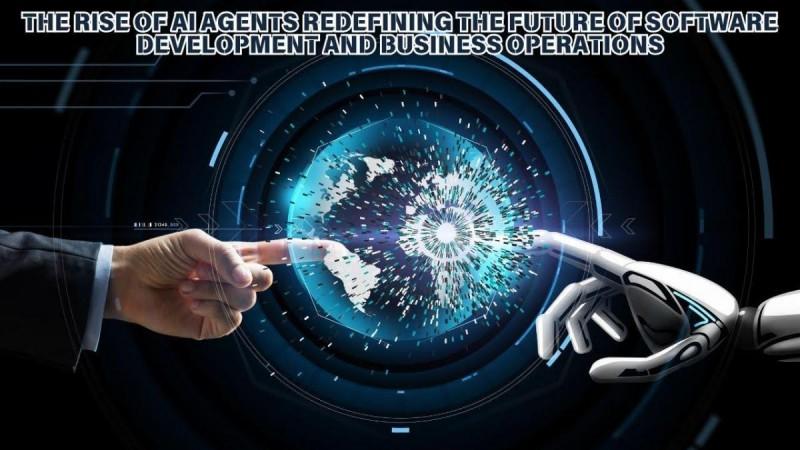
In a rapidly evolving world of enterprise software, AI agents are setting the stage for a profound shift. Poshan Kumar Reddy Ponnamreddy explores how these intelligent agents revolutionize the software industry. With their ability to automate complex processes and improve operational efficiencies, AI agents are paving the way for smarter, more responsive systems that meet the demands of today's dynamic business environment. These advancements reshape industries, enhance productivity, and drive innovation like never before.
A New Paradigm in Software Development
AI agents represent a fundamental shift in software architecture. Unlike traditional systems, which follow rigid business rules, AI agents introduce adaptive, intelligent systems capable of real-time decision-making. These agents offer a more agile and cost-effective alternative by reducing development cycles by up to 72% and maintaining costs by 84%. This change alters how businesses build and maintain software, enabling them to be more responsive to market demands.
Transforming Operational Efficiency
AI agents have greatly improved operational efficiency across industries. Manufacturing, for instance, has seen a 52% improvement in supply chain optimization, while financial services have reduced transaction processing times by 64%. Capable of handling up to 15,000 customer interactions simultaneously, AI agents provide scalable operations without compromising quality, transforming industries worldwide.
Revolutionizing Real-Time Decision Making
AI agents excel in real-time decision-making, unlike traditional software. These agents use advanced reasoning frameworks, combining symbolic reasoning with neural networks, to make intelligent decisions autonomously. The ability to process thousands of decision variables simultaneously enables businesses to adapt quickly to changes, keeping them competitive in a fast-paced environment.
The Economic Potential of AI Agents
The market for AI agents is expected to reach $52.3 billion by 2035. These agents are profoundly impacting across sectors such as customer service, pricing optimization, and supply chain management. Real-time pricing optimization alone is expected to generate billions by 2028. As businesses adopt AI agents, their economic impact will escalate, creating new opportunities and driving innovation.
Overcoming Integration Challenges
Integrating AI agents into existing systems presents challenges, including the need for significant architectural changes and addressing data migration, compatibility, and security concerns. However, businesses that manage successful integrations typically experience substantial improvements in efficiency and performance, making the investment worthwhile in the long run.
Training and Adaptation for AI Integration
The shift to AI agents requires substantial human capital investment. Development teams often experience productivity dips during the initial implementation phase as they adapt to new workflows. However, once teams adjust, they report a significant increase in productivity, often exceeding previous levels. Investing in training ensures teams are equipped to handle the complexities of AI-powered systems and maximize their potential.
Future of AI in Software
As AI architecture improves, the potential for AI agents to revolutionize software development continues to grow. These agents will handle increasingly complex tasks and make smarter decisions. In the future, AI agents will be seamlessly integrated into business processes, enabling automation and real-time adaptation across industries. With each advancement, AI agents will continue to redefine how businesses operate and innovate. Their ability to learn and adapt will drive continuous improvement, making businesses more agile and resilient to evolving challenges.
In conclusion, Poshan Kumar Reddy Ponnamreddy highlights how AI agents are reshaping software development and creating a new frontier in business operations. Their capacity to automate tasks, improve decision-making, and drive efficiency will continue to impact industries worldwide. As the adoption of AI agents grows, so too will the opportunities for innovation and transformation across the enterprise software landscape. This evolution will not only streamline business processes but also unlock new potential for organizations to thrive in an increasingly digital world.












!['Valentine's Week in Parliament'? : Saugata Roy, June Malia's cosy conversation amid house session goes viral [Watch]](https://data1.ibtimes.co.in/en/full/828484/valentines-week-parliament-saugata-roy-june-malias-cosy-conversation-amid-house.jpg?w=220&h=138)




